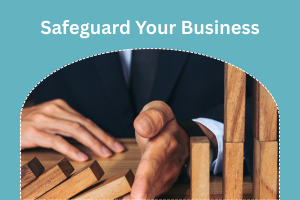When debt starts piling up and pressure from creditors becomes overwhelming, many individuals delay asking for help. Whether you are a business owner or an individual, the idea of speaking to an insolvency practitioner might feel intimidating, or like admitting defeat. However, an insolvency practitioner (IP) could be your greatest ally when everything feels as though it is falling apart.
What Is an Insolvency Practitioner?
An insolvency practitioner is a licensed professional legally authorised to assist individuals and businesses in addressing serious debt problems. In the UK, they must be regulated and pass stringent exams to fulfil this role.
Think of them as financial problem-solvers with the legal authority to:
- Rescue businesses or individuals from insolvency
- Create formal debt repayment plans (like IVAs or CVAs)
- Act as administrators, liquidators or trustees when needed
They are not here to judge you; their role is to listen to your circumstances and find the most practical path to getting you back on track.
6 Signs you might need an Insolvency Practitioner
You do not need to be bankrupt to speak to an IP. In fact, the earlier you ask for advice, the more options you will typically have. Here are some common warning signs:
- Your business can’t pay its debts when they’re due
- You’re juggling multiple credit cards or loans just to cover bills
- HMRC is sending letters about unpaid tax
- Creditors or bailiffs call regularly
- Your company is struggling to pay staff or suppliers
- You feel stressed or trapped, and cannot see a way out
What can an Insolvency Practitioner do for you?
Depending on your situation, an IP may recommend:
For Individuals:
- Individual Voluntary Arrangement (IVA): Freeze your debt and repay it in affordable monthly chunks.
- Bankruptcy Advice: Help you understand what bankruptcy would involve and whether it’s right for you.
- Debt Management Plan referrals: Sometimes informal plans can be more appropriate.
For Businesses:
- Company Voluntary Arrangement (CVA): A deal with creditors to repay a portion of debt and keep trading.
- Administration: Protects your company from legal action while a rescue or sale is arranged.
- Liquidation (Creditors’ Voluntary or Compulsory): An orderly closure that deals with debts legally and fairly.
An IP is not just a “last resort” they are often problem-solvers.
What makes a good Insolvency Practitioner?
It is not just about qualifications. You want someone who will:
- Listen without judgement
- Explain your options in plain English
- Be regulated by a recognised body (like IPA or ICAEW)
At My Insolvency, we aim to be exactly that: calm, compassionate, clear.
Why you shouldn’t wait
Here is the reality: the earlier you ask for help, the more control you will have over your situation. Waiting often leads to fewer options, increased pressure, and rushed decisions.
An insolvency practitioner does not just “deal with your situation” they help prevent it from worsening, and often help you in a stronger rebuild.
Need some guidance?
At My Insolvency, we’ve helped hundreds of individuals and companies face tough financial moments with clarity, care and the right advice. Everything we do starts with a free, no-obligation chat.
Let’s talk about your next step rather than viewing this as a last resort.




